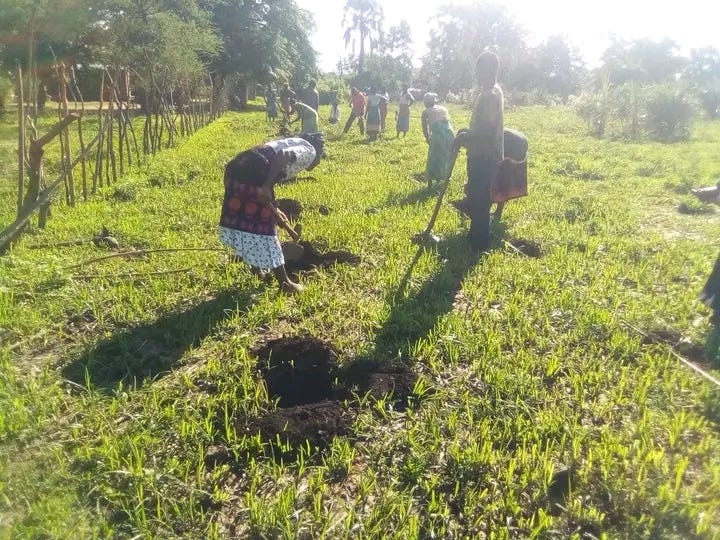Chikwawa Communities Combat Malnutrition with Moringa Trees
Looking ahead, Kawiya and his Moringa Tree Food for Life Foundation plan to establish a factory to process Moringa leaves into medicine for nationwide distribution.
Chikwawa, Malawi - Communities in and around Chapanga in Chikwawa have discovered a solution to address malnutrition among children by harnessing the nutritional benefits of the Moringa tree, which provides vital nutrients such as vitamin A, proteins, iron, and calcium, writes Moses Thole.
The "Moringa Food for Life" project, championed by the Moringa Tree Food Life Foundation in Chikwawa District, encourages communities to plant and utilize the Moringa tree, particularly its leaves, to enhance their health and combat malnutrition.
The project was initiated in January 2022 in response to a surge in malnutrition cases in the Chapanga area, especially among children under five, posing a significant risk of stunted growth.
Since its inception, the project has been urging every household to plant a Moringa tree.
Rose Emmanuel, a resident of Village Head Fombe under Traditional Authority Chapanga, praised the benefits of the Moringa tree: "My 3-year-old child has been in and out of the hospital due to a lack of essential nutrients. The Moringa Tree Food for Life Foundation trained us on how to plant and care for the Moringa tree, which is said to contain all six groups of essential nutrients. Since I started using the tree, my child has been healthy."
"I will continue planting more Moringa trees since it has proven to be very helpful to the body," she added.
Damiston Msona of Village Head Thomas in the Chapanga area shared his positive experience: "Through the Moringa Tree Food for Life project, I have learned a lot that has helped boost my immunity. I have more trees at my compound because I have noticed what they contain. Apart from that, it is a readily available delicacy. The tree also acts as a herbal therapy, healing various diseases. I had been battling abdominal pain for over three months, but when I started using the tree, I felt much better."
Senior Health Surveillance Assistant in Chikwawa District, Mtsogoli Ganamba, also emphasised the effectiveness of Moringa leaves for human health: "From treating stomach disorders, improving eye health, treating diabetes, and asthma, among others, people should be encouraged to eat Moringa leaves to boost their immunity and reduce the risk of life-threatening diseases, including high blood pressure."
Chairperson for the Moringa Food for Life Foundation, Pastor Moshi Kawiya, expressed satisfaction with the project's progress, noting that many communities have shown interest in planting and using the Moringa tree.
He added that there has been a decline in malnutrition cases in the area.
"Our project has been acknowledged by different stakeholders, and villagers have shown an interest too. Many are planting Moringa trees because they have recognised that people's lives have improved. Previously, the Chapanga area had no Moringa trees. Then we started giving training to people on how to plant, care for, and use the tree. Everything is moving smoothly," said Kawiya.
Kawiya is optimistic that by 2030, every household will have more than ten Moringa trees.
However, he revealed that since they distribute seedlings for free, the project often faces financial challenges in procuring and transporting seeds to various communities.
He called upon well-wishers to support the group with resources.
Looking ahead, Kawiya and his Moringa Tree Food for Life Foundation plan to establish a factory to process Moringa leaves into medicine for nationwide distribution.
Additionally, the foundation aims to train peer educators to instruct communities on processing Moringa leaves for household use.



